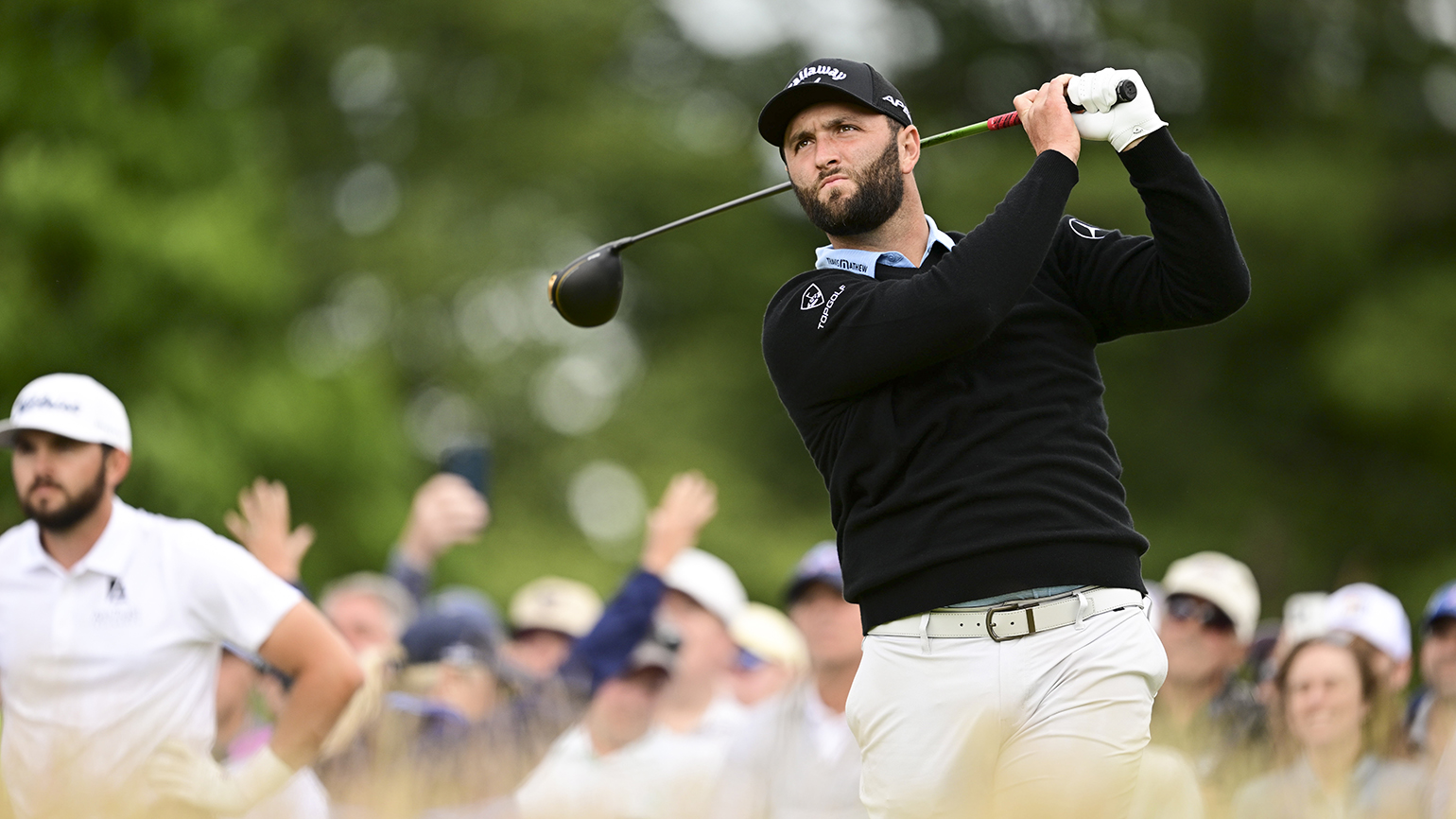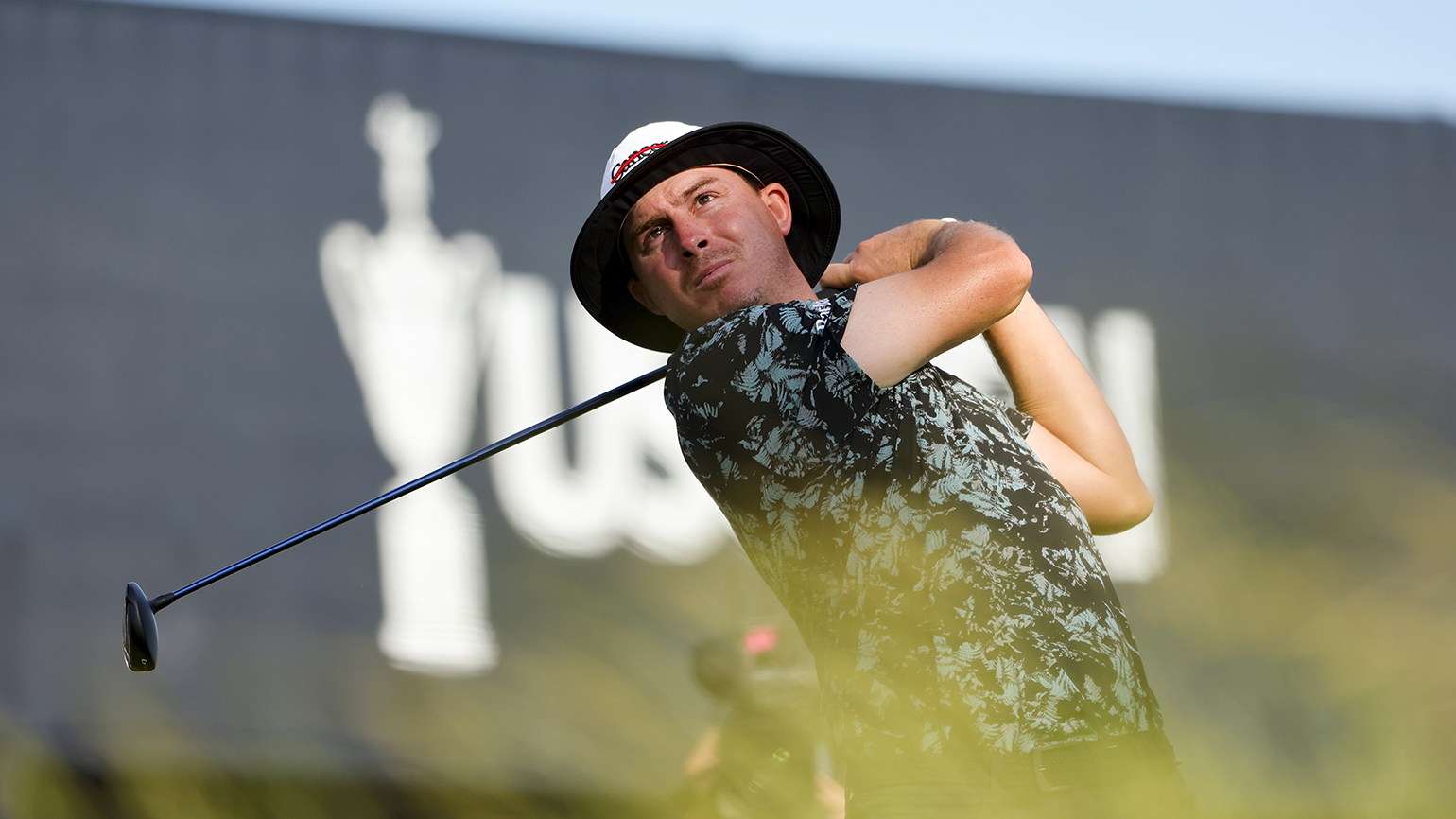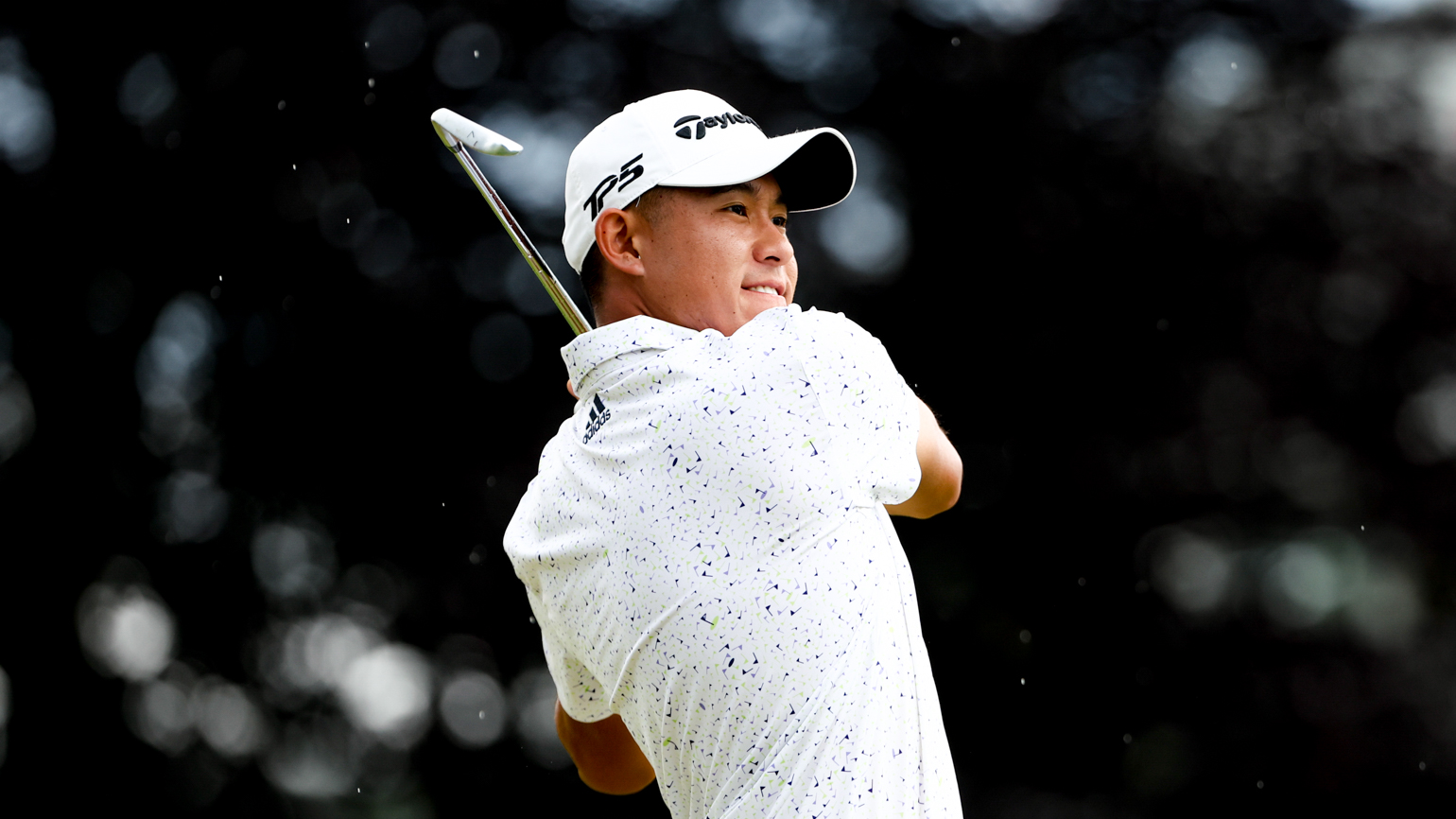10 Stats to Know: Round 3, 122nd U.S. Open
Through three rounds, the 122nd United States Open is shaping up to be an absolute classic. Tougher conditions greeted the world’s best players on Saturday, as scoring jumped up more than a stroke and a half over what the field did in Round 2. That was the fourth-largest such increase in the history of this championship.
As the page turns to Sunday, the storylines at this championship are seemingly endless. Here are 10 Stats to Know from Round 3 in Brookline:
1. Again loudly knocking on the door at a major championship is 25-year-old American Will Zalatoris, who sits in a tie for the lead through 54 holes. Zalatoris lost a playoff at last month’s PGA Championship. The last player to lose a playoff in a major, then go on to win the next major contested, was Arnold Palmer at the 1962 Open Championship at Troon. Zalatoris, who led the field Saturday in strokes gained putting, is seeking his first credited PGA Tour victory, as well as the U.S. Open Championship. Should he win on Sunday, he would be the first American player to earn his first PGA Tour title at his national championship since Jerry Pate in 1976.
Though Zalatoris is yet to get a win on the Tour, he’s become an absolute stalwart in the majors. At the PGA, he became the first since Ernie Els to get five top-10 finishes in his first eight career major starts. The last player with six top-10 finishes in their first nine major appearances? That would be Argentine Antonio Cerda, who rattled off seven top 10s in the British Open from 1949 to 1957. Zalatoris has averaged 2.72 strokes gained total per round in the majors since 2020, the highest rate of any player in that span.
2. Tied with Zalatoris is Englishman Matt Fitzpatrick, who won the U.S. Amateur title at this very site nine years ago. With a win Sunday, Fitzpatrick would become the 13th man to win the U.S. Amateur and U.S. Open in his career – but the first player from outside the United States to achieve the feat.
By pulling off the same-course Amateur/Open double, he would join a pair of legends of the game. The only man to win a U.S. Amateur and a U.S. Open on the same course is Jack Nicklaus at Pebble Beach. The only woman to pull off the feat is Juli Inkster, who won one of each at Prairie Dunes.
Fitzpatrick is just the third Englishman in the last 75 years to hold the 54-hole lead or co-lead at the U.S. Open, along with Tony Jacklin (1970) and Kenneth Ferrie (2006). Fitzpatrick – who also has never won on the PGA Tour – will try to become the first player to get his first PGA Tour title at a major since Danny Willett at the 2016 Masters.
3. Until a double bogey on the 18th hole, it looked like Jon Rahm would become the sixth defending champion in U.S. Open history to hold the 54-hole lead. His closing double bogey isn’t the end of the world – in Round 3 last year, Rahm doubled 14, and trailed the co-leaders by three strokes on Saturday night. He’s just one back this year.
Rahm is trying to become the fourth player since World War II to win the U.S. Open in back-to-back years, along with Ben Hogan, Curtis Strange and Brooks Koepka. With a win, he would be the first player from outside the United States to successfully defend his U.S. Open title since Scot Willie Anderson won his third in a row in 1905. Only two European players in the last 100 years have won the same men’s major in back-to-back years: Nick Faldo (1989-1990 Masters) and Padraig Harrington (2007-08 British Opens).
4. Headlining a pack of chasers at 2 under is world No. 1 Scottie Scheffler, who led outright at one point on Saturday before Brookline bit back. This marks the 10th time the reigning world No. 1 player has been inside the top five through 54 holes of the U.S. Open (the World Ranking began in 1986). Three of the previous nine went on to win – with each of those victories belonging to Tiger Woods.
Woods is one of the three players to win the U.S. Junior Amateur and U.S. Open in their careers, a championship Scottie claimed back in 2013. Only two others have won both of those events – Johnny Miller and Jordan Spieth. Fellow former Longhorn Spieth is also the last player to win the Masters and the U.S. Open in the same season, doing so in 2015. Scheffler is second on the aforementioned list of players with the most strokes gained total in the majors since 2020, just behind Zalatoris and narrowly ahead of Rahm.
5. Notorious Boston sports fanatic Keegan Bradley had the Massachusetts faithful in a frenzy on Saturday, carding five birdies in a round of 69. Bradley is looking for his second major victory 11 years after winning the 2011 PGA Championship. The last player to get his second major win 11 or more years after his first? That would be Ben Crenshaw – the man who captained the historic singles comeback by the United States to win the 1999 Ryder Cup at this very course.
6. Rory McIlroy battled his way to a 73, and will enter the final round three shots behind our co-leaders. McIlroy has relied heavily on his putter to keep him in contention this week: through three rounds, Rory has made more than 165 feet of par putts.
McIlroy leads the field in strokes gained putting, something that’s been a harbinger of success in his professional career. Only twice has McIlroy led a tournament field on the PGA Tour in that statistic over 72 holes. He won both tournaments. McIlroy is trying to get his fifth major championship eight years removed from his last win, the 2014 PGA. In men’s major history, the longest gap for a player between his fourth and fifth victories is seven years, by Australian Peter Thomson.
7. Whatever leader can best traverse the first four holes at The Country Club on Sunday will be in tremendous position to win. Through three rounds this week, holes 1 through 4 have played more than a full stroke over par, on average (+1.04). Players have made birdie or better just 6.4 percent of the time during that stretch. Compare that to the following four holes – 5 through 8 – where the field is a combined 59 under par. Players have carded red numbers nearly four times as often on holes 5 through 8 than on the opening four.
8. It was a brutally tough Saturday for 36-hole co-leader Collin Morikawa, who shot 77, his highest-ever round in a major championship. It won’t be much consolation, but Morikawa has plenty of recent company as a 36-hole leader with a difficult third round: this is the fourth time in the last five years that a player who led or co-led after two rounds shot 77 or higher in Round 3. Dustin Johnson did it at Shinnecock, Patrick Reed at Winged Foot, and Richard Bland did it last year at Torrey Pines.
9. The U.S. Open is long overdue for a playoff. It’s been 14 years since Tiger Woods took down Rocco Mediate at Torrey Pines, and we haven’t had extra holes to decide the championship since. It’s the longest U.S. Open playoff drought all-time – the previous long was eight years, from 1975 to 1984.
There’s no better place than The Country Club to snap that streak: each of the last six times the U.S. Open was held in the state of Massachusetts, the championship was decided by a playoff. The playoff format is best two-hole aggregate score and will take place on holes 1 and 18.
10. Historically speaking, the cutoff point on who can likely win tomorrow is pretty distinct. Each of the last 31 U.S. Open champions were T-8 or better through 54 holes. The last 23 champions were each at or within four shots of the lead entering the final round. That leaves us the group of nine players at 1 under or better who have the best shot to win Sunday at Brookline.
But just last month, Justin Thomas came from seven back to win at Southern Hills, the largest 54-hole deficit overcome to win a men’s major since 1999. The largest 54-hole comeback to win in U.S. Open history is seven, by Arnold Palmer at Cherry Hills in 1960.
Justin Ray is the head of content for Twenty First Group. He has also worked as a senior researcher at ESPN and Golf Channel.
















